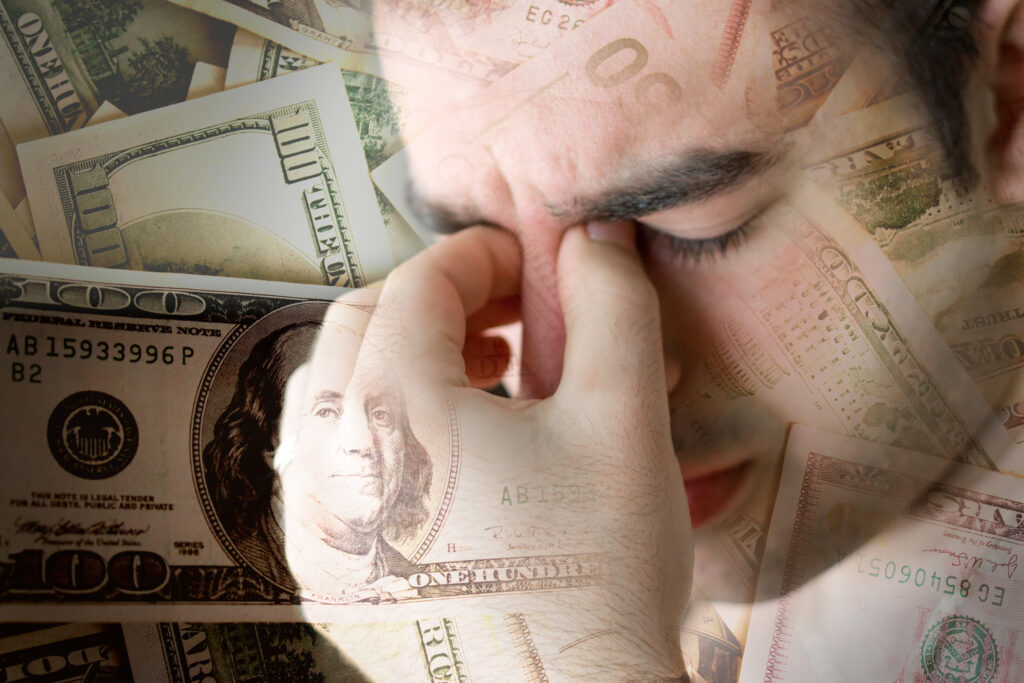
A lot has been written about restoring one’s financial fitness after bankruptcy, but bankruptcy does just as much damage to a person’s psyche. After bankruptcy, anger and shame are natural emotions, but they don’t need to last forever. Many people find that a financial catastrophe like this it is just what they needed to get a fresh start. While this doesn’t negate the fact that bankruptcy causes long-term damage to their credit report, one that won’t go away yet for seven years, it is still better than continuing along the path they were on.
Read This : New Law Article
Even if your friends and family tell you it’s going to be okay, the experience can still be bruising to your ego. “The creditors make you feel like you failed, you are a loser and you are worthless,” says Robin Hardy, a person whose company, the Moosey Group Inc., filed for bankruptcy.
According to many bankruptcy “survivors,” a common reaction is a feeling of failure. The shame of having to declare bankruptcy can be crippling at first, particularly for successful entrepreneurs and business leaders. Feelings of failure go beyond one’s personal bank balance and extend to include family relationships, business alliances and one’s professional reputation . Needless to say, this impact is felt beyond the individual. This is why it is so important to take any necessary steps to avoid bankruptcy entirely.
Feelings of loss, anger, depression can eat at you. Exercise self-compassion and let these feelings go. Let go of resentment and blame, and try your best to keep your focus on the positive things in your life. Devloping a grateful attitude can do wonders. Although for many, filing for bankruptcy feels like life is over, it really can be a fresh start in many respects.
Secrets of surviving personal bankruptcy:
Here are some “survival tips” to help you stay out of trouble before you contemplate bankruptcy:
- Don’t bite off more than you can chew. Every time you make a purchase with a credit card, put away the amount of that purchase in a separate account and pay the bill in full every month. This may be a difficult habit to form but it will keep you from accumulating more debt.
- Downsize your lifestyle. Get a roommate or find a less expensive place to live. Avoid the dining out trap and learn to cook delicious meals at home. Bring your lunch instead of going out every day. Cut back on “extras,” like premium cable channels, satellite radio, regular massages.
During Bankruptcy, make every effort to keep your Emotional Health in order:
- If you do have to declare bankruptcy, don’t wallow in guilt. A lot of people find that they get a second chance at life through bankruptcy. Take this time to reinvent yourself and take this opportunity to get a fresh start with your financial future. From a business perspective, bankruptcy forces you to explore who you really are and embrace the opportunity to reinvent yourself.
- Do your best to stay positive and proactive. Rethinking your perspective of bankruptcy will both help with the stress and anxiety significantly. It can help you realize that while it’s not necessarily an easy process, it is also not as scary as you first thought it was.
- Get help when you need it. Seeking out the help of a bankruptcy attorney is most obvious way to get the help you need. Even though a bankruptcy attorney is not required, he or she will help you navigate the legal aspects of the process as well as manage many if not most of the more involved tasks and possible complications. At Swift Bankruptcy Law Firm, we hold your hand every step of the way, guiding you on the path to a fresh new start.
Since therapy is a great way to get to the root of stress and to develop healthier ways of coping, seeking out the assistance of a professional therapist is also a good option. - Remember that you are not alone. Filing for bankruptcy is actually pretty common, even though most filers are reluctant or unwilling to talk about it. The worst thing you can do when dealing with bankruptcy stress is to keep negative feelings bottled up and to yourself. Lean on family, friends and professionals during this emotional time. Healthy habits such as good diet, exercise and getting good sleep will contribute to good physical health. Research has shown that the better your physical health is, the better your mental health is as well.
Who is filing for bankruptcy these days?
According to one of our recent blogs, “What Are The Patterns of Bankruptcy Filers” the most common reasons for bankruptcy are often related to circumstances beyond the control of the filer. For example, a study from 2005 revealed that 46 percent of bankruptcies were related to medical expenses from a serious illness not covered by insurance and the resulting loss of income, and this particular reason is on the rise.
A new study from academic researchers found that 66.5 percent of all bankruptcies were tied to medical issues — either because of high costs for care or time out of work. An estimated 530,000 families resort to bankruptcy each year because of medical issues and bills, the research found. The research also showed that the implementation of the Affordable Care Act has not improved the numbers either. Many people don’t realize that their health insurance may not be enough to protect them…especially with the rise in deductibles and total out-of-pocket expense amounts that the average plan now has.
“Despite gains in coverage and access to care from the Affordable Care Act, our findings suggest that it did not change the proportion of bankruptcies with medical causes,” an article on the study published in the American Journal of Public Health states. In fact, the percentage of debtors citing medical issues as the primary reason for filing for bankruptcy relief actually increased after the law’s implementation, from 65.5 to 67.5 percent in the three years following the law’s adoption. According to one of the authors of the research, Dr. David U. Himmelstein (a Hunter College professor and founder of the advocacy group Physicians for a National Health Program) the cause for this rise was due to inadequate healthcare insurance.
At the time of petition, the average age of the filer seems to be rising as well. Since the early 90’s more senior citizens are declaring bankruptcy while fewer filers are under the age of 25. In fact, since 2007 those under 25 made up less than 2% of all filers. During that same period of time, the percentage of older petitioners (over the age of 55 years old) more than doubled, now accounting for nearly 20% of all filers. As of May 2019, the median age of filers is about 45 years old.
Other reasons for filing often include: unaffordable mortgages or foreclosure (45%), living beyond one’s means (44.4%), loaning money to / helping relatives or friends (28.4%), student loans (25.4%), or divorce/separtation (24.4%)
Why do women file for bankruptcy?
Other than women who have overspent on credit cards, there is another set of circumstances that affects women more than men. It is the dishonesty of a significant other or spouse.

In many cases, a woman’s husband may have convinced her to put her home in her name only, but then when the relationship fell apart she was stuck with the burden of paying the mortgage. In other cases, a woman may have added a fiancé or significant other to her credit card, then after breaking the engagement she was forced to file for bankruptcy because of the bills he racked up.
Other than dishonesty, some common causes include a bad economy, medical bills and job loss. Many women have found they needed to file for personal bankruptcy after a divorce if their job wasn’t sufficient enough to sustain their current debt load.
No matter how you landed in bankruptcy court, it isn’t a death sentence. Many people find that after bankruptcy they are happier, more grounded in their personal lives and careers, and better able to navigate their financial future.
Don’t underestimate the seriousness of stress due to bankruptcy
Stress can have serious, medically observable effects on your well being. Long term stress, in particular, can be dangerous for your mental and phyical health. Complications can include: impaired short term memory, difficulty thinking rationally and expressing feelings to others, changes in appetite/weight, concentration issues, and issues with sleep patterns and personal relationships. These complications can impair your emotional state which in turn can cause you to think, feel, and act in ways you never would under normal circumstances. Unfortunately, this can lead to additional problems that go far beyond finances. Therefore, always be engaged and take proactive steps to improve/maintain your physical, mental and emotional help. In the event you feel like things are going beyond your control, seek help from a professional as soon as possible.
Again, you can turn to Swift Law Firm for help. Our team makes you and helping you to get the legal help you need a top priority. Our support staff is skilled at not only the legal aspects of bankruptcy, but with making you feel as comfortable as possible as we navigate through the bankruptcy process together.
Contact us today for a free consultation to see if bankruptcy is the best option for you. Don’t be afraid to reach out for the help if you need it.







